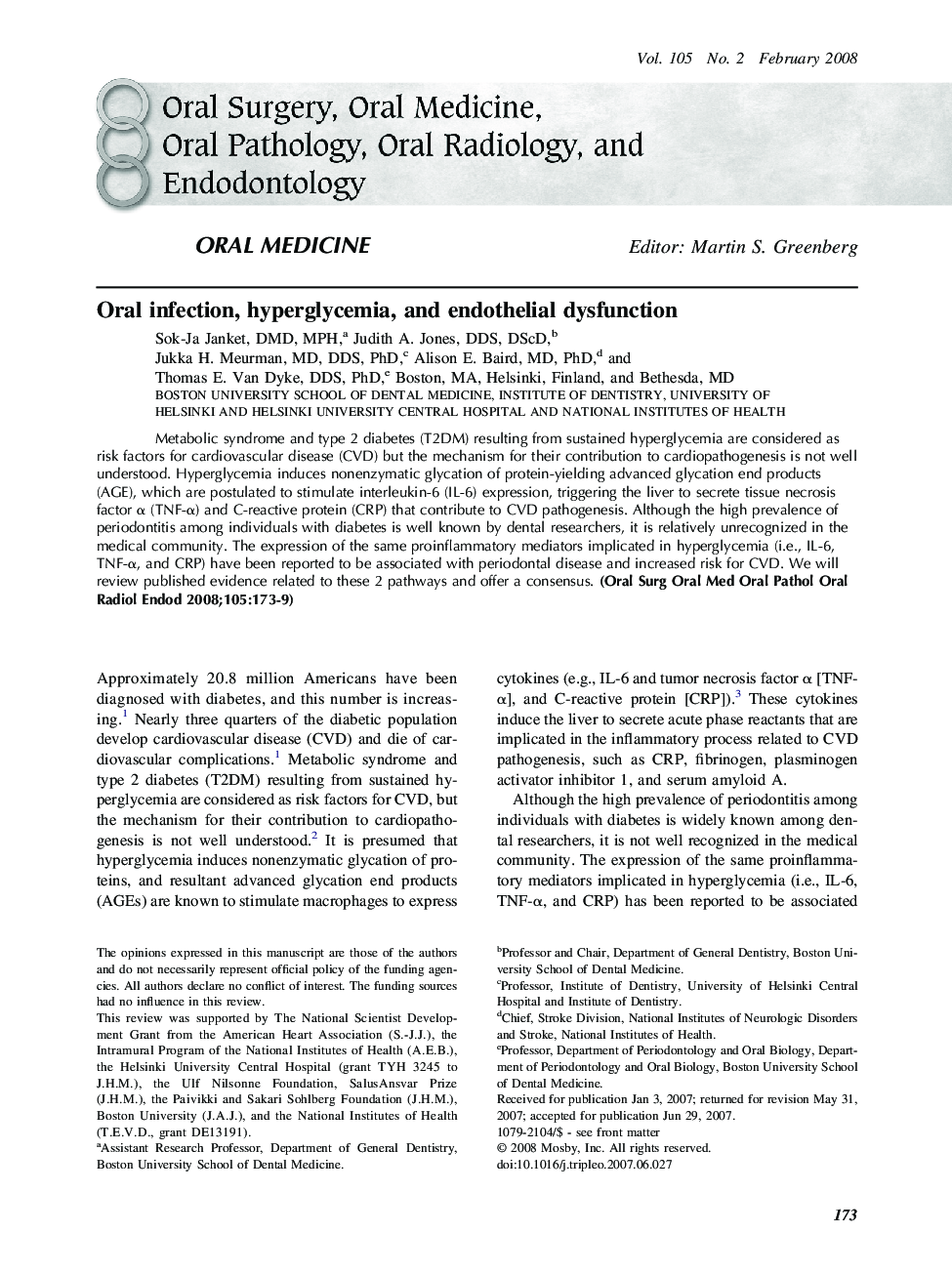| Article ID | Journal | Published Year | Pages | File Type |
|---|---|---|---|---|
| 3168938 | Oral Surgery, Oral Medicine, Oral Pathology, Oral Radiology, and Endodontology | 2008 | 7 Pages |
Metabolic syndrome and type 2 diabetes (T2DM) resulting from sustained hyperglycemia are considered as risk factors for cardiovascular disease (CVD) but the mechanism for their contribution to cardiopathogenesis is not well understood. Hyperglycemia induces nonenzymatic glycation of protein-yielding advanced glycation end products (AGE), which are postulated to stimulate interleukin-6 (IL-6) expression, triggering the liver to secrete tissue necrosis factor α (TNF-α) and C-reactive protein (CRP) that contribute to CVD pathogenesis. Although the high prevalence of periodontitis among individuals with diabetes is well known by dental researchers, it is relatively unrecognized in the medical community. The expression of the same proinflammatory mediators implicated in hyperglycemia (i.e., IL-6, TNF-α, and CRP) have been reported to be associated with periodontal disease and increased risk for CVD. We will review published evidence related to these 2 pathways and offer a consensus.
